The Sparks story: the obscure legend of the secretive trendsetters
Содержание
I learnt about the legendary Sparks band late - I grew up and formed my tastes in a much later era. But I was already ready for Sparks - I seemed to feel their place, even though I didn't know them by name. Thanks to Queen... My working theory: no great ensemble was ever a pioneer - they brilliantly developed what had been invented before them (otherwise there simply wouldn't have been enough time and energy: to invent and promote). When it comes to The Beatles or Led Zeppelin, you name a lot of bands that preceded them. But Queen came out of nowhere with an innate genius theatricality and pompous virtuosity. And when listening to Queen I always felt strange: how could such a thing be invented and immediately "thrown to the masses"?!... I could feel the shoulders of invisible giants on which Mercury and May were firmly treading. And those giants were Sparks. (And the great Freddie himself admitted it honestly).
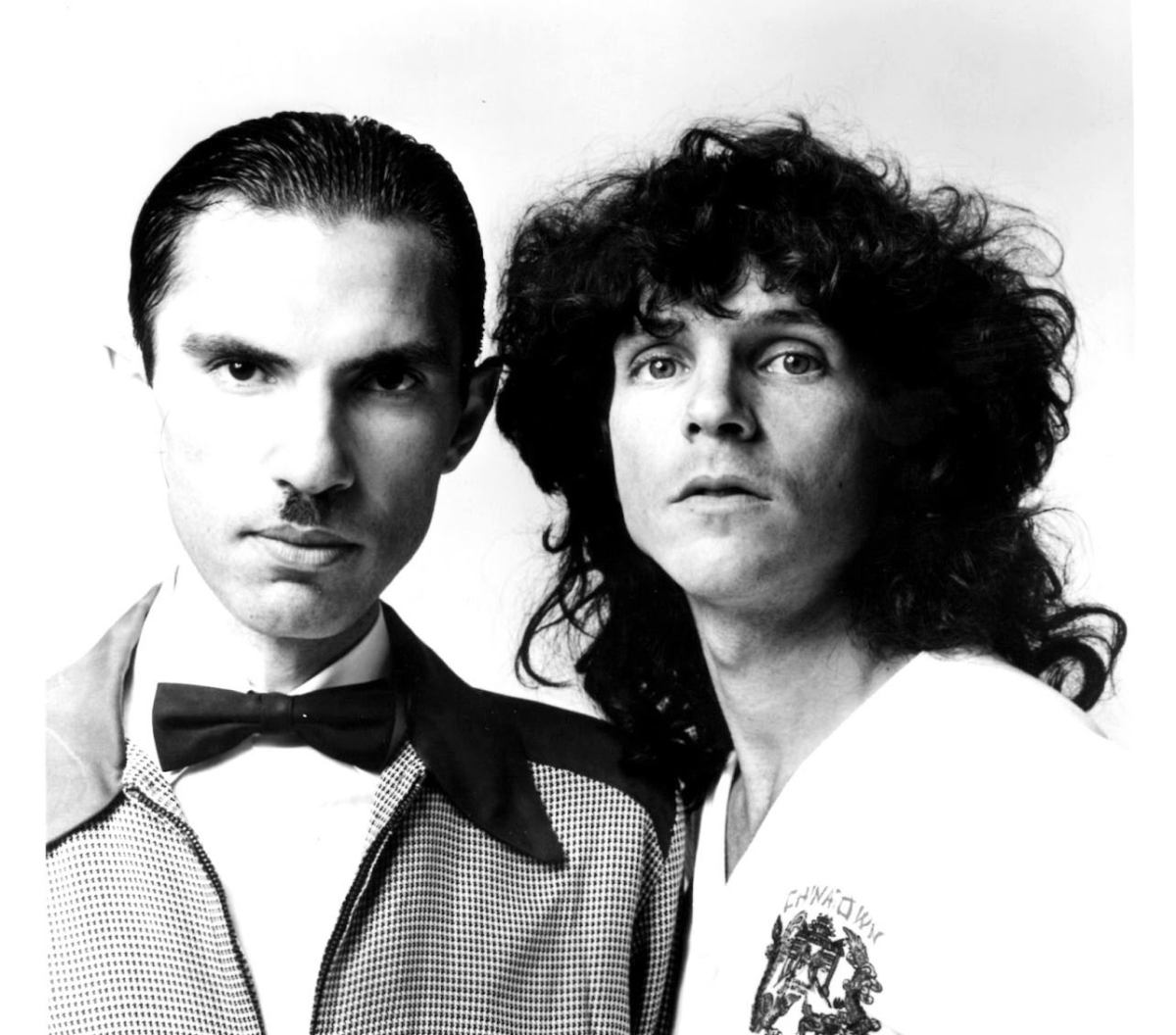
The Sparks' innate modesty, slick format and dismissive escapism prevented them from becoming really popular - many people don't know them at all. But the Sparks' music and delivery format were exploited by Queen, making them overnight icons of a new dimension of rock 'n' roll.
So, who are Sparks?

They are the duo of brothers Ron and Russell Mael, plus an ever-evolving team of distinguished instrumentalists. The ensemble's hallmarks are:
- Russell Mael's specific operatic falsetto with rhythmics on the edge of hip-hop.
- The musical foundation is not guitar-driven, but rather Ron Mael's melodic and complex, yet constantly repetitive (trance-like) piano passages.
- An exceptional mannerism of delivery that Lagutenko himself would envy (or maybe even emulate).
- Quirova's defiant appearance.
- Suppressed-sexual (or even BDSM, but totally dotted) motifs in the artwork of many album covers.
- Absurdist texts that idiotically address the most important, meaningful life issues, especially in terms of criticising consumer society - ironically and subtly.
- Constant textual and musical repetition - already here one can assume Sparks to be the heralds of trance and even hip-hop.
- The mysteriousness of the ensemble, the closedness of the personal lives of the band members from the media.
- Subsequently, it's a constant feint at moving between genres. And even between countries and the defining national musical cultures: Los Angeles and London.
- The original, unique, extraordinary focus on the TV format.
The last point is the main one for Sparks. Ron Mael himself said that the TV screen was a real discovery for him - or rather, the idea of using it as the main mouthpiece for a piece of music. A club or pop concert is usually for a limited number of fans who have come to get a good look at their favourite artist. A stadium concert (back when the stages were not yet duplicated on giant LCD screens) is for fans of sound and effects only. You can't really see the artist, unless he's doing something crazy like KISS. But performing in a show like "Top of the Pops" is a great opportunity to achieve a greater effect with a bend of the eyebrow and a movement of the shoulder than is achieved by an actor smashing an electric guitar against a speaker on stage.
The enlarged face on the screen in the centre of the living room is an instrument of power and influence. And if you add to the on-screen pantomime repetitive musical loops, rhythmic high-pitched shouting, the refrain of the same phrase, the effect is overwhelming! Specific tendrils adorning the face of the early Ron Mael - perhaps a hint at the totalitarianism of the screen effect (we can assume, knowing Mael's trademark humour). Upon first seeing a snippet of Sparks' TV performance, an astonished John Lennon mumbled: "I've just seen Hitler on TV...".
Creativity...
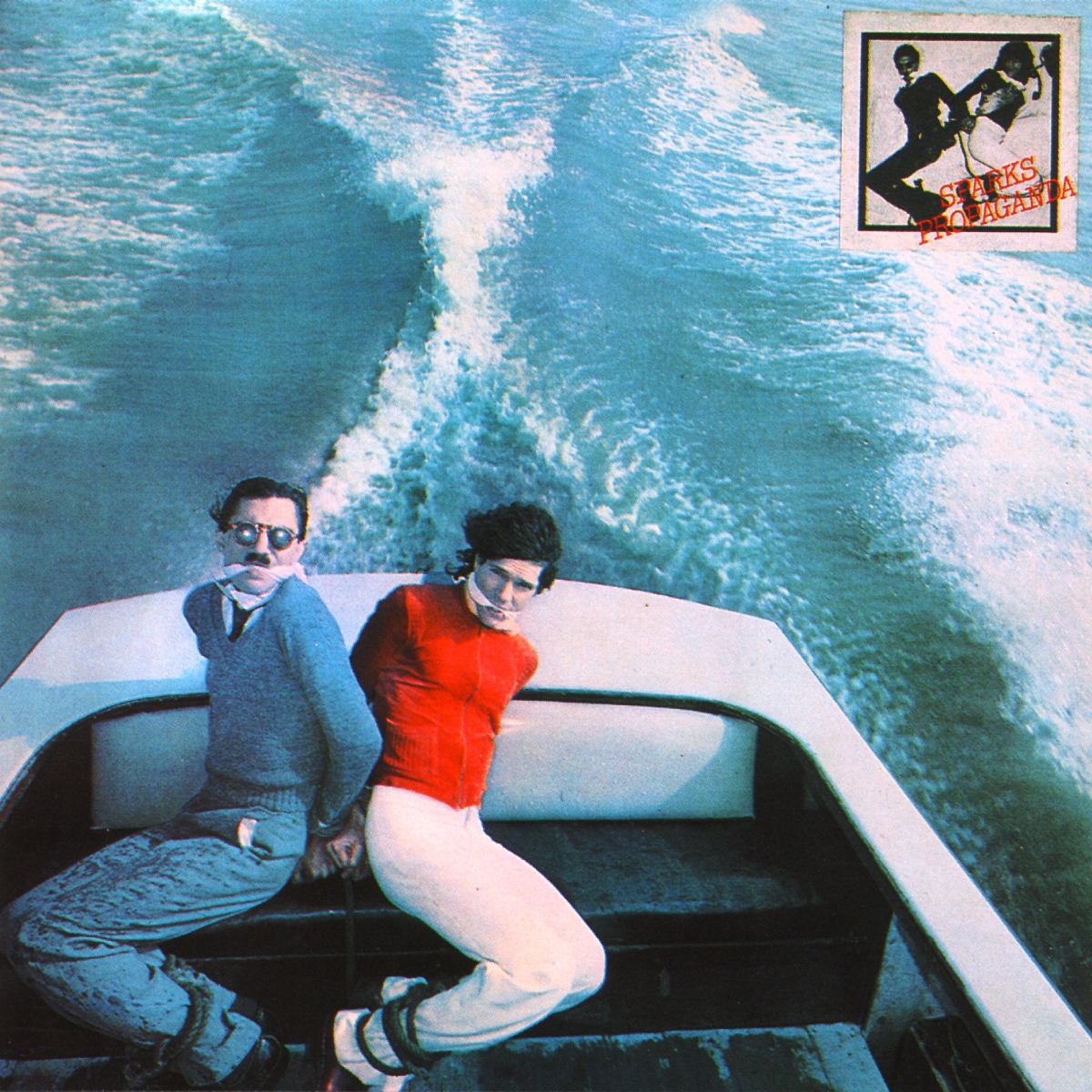
From the first albums, Ron Mael's rhythmic and "loupy" piano battle was burdened with elegant rock-baroque arrangements (by the way, Sparks were among the first in baroque-pop), also referring to both psychedelic and progressive. And, of course, lots and lots of glam mannerisms and artsy pretentiousness. Like Bowie, Sparks played with genres, but, unlike the "chameleon of rock", they didn't trample the field to the last, but mixed styles into unimaginable mixes, as if despising genre affiliations, tied to a certain mood (this is what distinguishes - psychologically - one musical genre from another). Maela, like a squeamish dandy, tried with two fingers one, another, another, another, another, not trusting completely to any of the popular trends. As if in order to reach all the target audiences of the 1970s music industry, the Maelas were not only stage-wise, but also musically, making music that was both unusual and a hit.
Only the first four glam albums resembled each other and the music that was contemporary to them - then the bacchanalia began. But unlike Captain Beefheart or even Zappa, the Maels did not test their listeners' endurance. They were always light, almost weightless - even when performing trendy heavy rock or AOR. They were not pops, but they played rockapops, using the musical language for their spells. And it turned out to be real witchcraft - and it still does. "Kimono My House" and "Propaganda" (both 1974) are true icons of syncretistic pop glam rock, inspiring three generations of imitators to find a middle ground between sublime complexity and mainstream popularity.
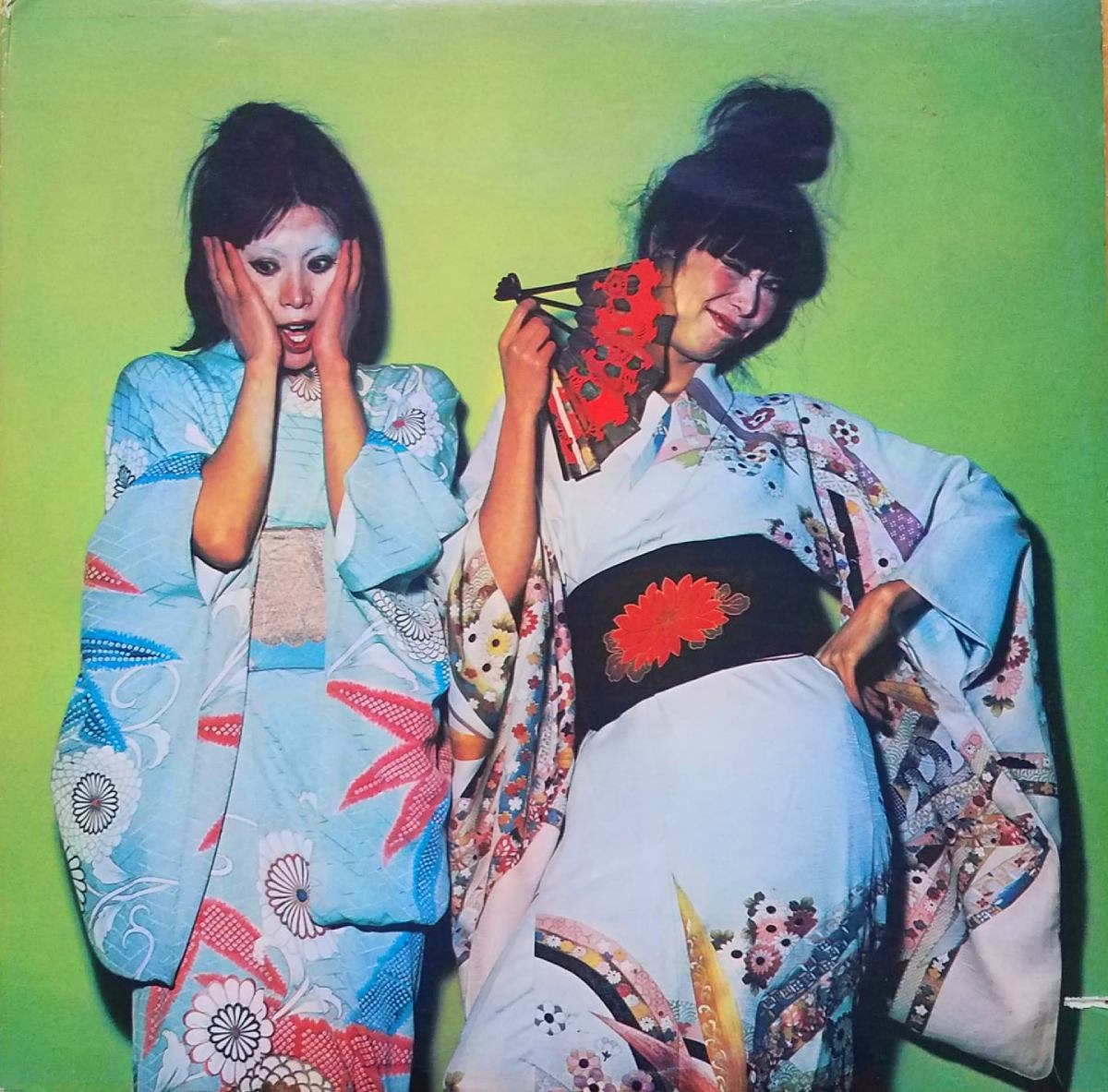
When rock music became a part of mass culture, the Maels got bored and suddenly moved into the growing popularity of synthpop, colloquially referred to as "disco" (which is not quite right). Their rock fans recoiled in droves, but other fans emerged, from other milieus that rock culture usually skirts (e.g. ethnic and sexual minorities, intellectual elite and artistic bohemians). When Queen fired off their rock operettas (invented as a genre by the Maelas), the Sparks sound, via the ever-memorable Giorgio Moroder, moved to illuminated dance floors; their "No. 1 in Heaven" (1979) rattled under the disco balls! And they moved suddenly, completely and totally - unlike the Be Gees, 10CC or ELO, who kept their attachment to rock culture even in the grooviest dancefloor. And not as crude and useless (and certainly not as commercially profitable) as KISS, who lost face overnight with their disco antics.
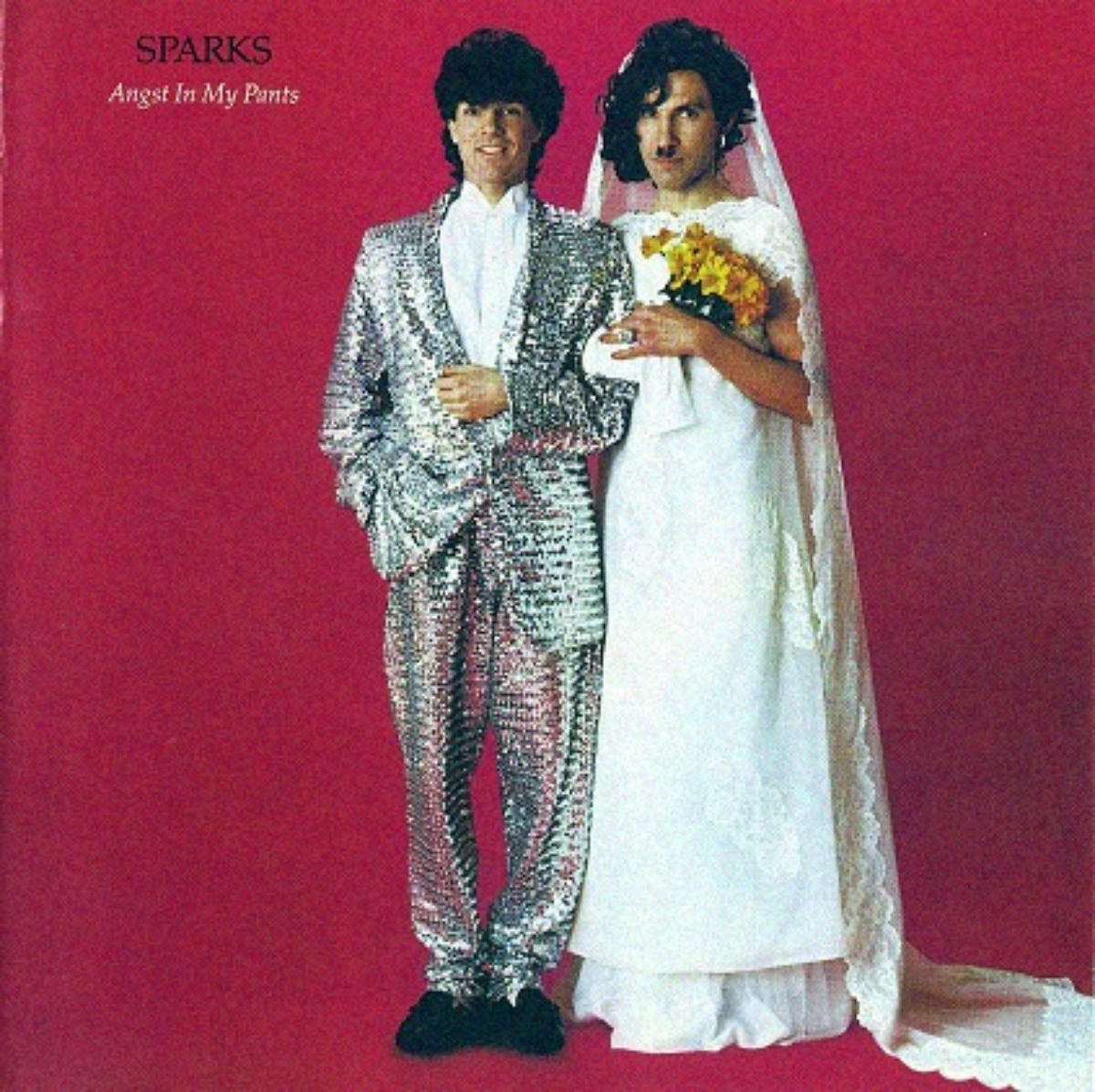
The genre took off - the rise of synthpop is still considered one of the most rapid and difficult to explain. Curly-haired rockers dressed up in multi-coloured latex and sequins and began jamming beats on synthesisers. Sparks' soul got sad (figure of speech - I can't believe that this emotion is available to Maelam at all). And they triumphantly returned to rock ("Angst in My Pants", 1982)! Scaring away all their new fans and gaining fame of the most unpredictable musical group.
The search for self...
And then they returned to disco again... And they made a lot of albums in it, almost every of which had a sticky hit, confidently travelling the radio spaces. And then Maela took on new wave, goth, electronica. And then Baroque-pop again, partly revived by them (highlights include 2002's "Lil' Beethoven" and 2009's "The Seduction of Ingmar Bergma"). To be on the crest of fashion, but not in a leading way, but somehow aloof, on tiptoe - that's Sparks' style. They are like elves from another world, pretending to be human in one of the main human languages - musical. How not to think of Bowie again with his Ziggy Stardust... That's how Sparks became great weirdos. Incomprehensible show-offs, who came to the ready-made genre space, mocked, spoilt the atmosphere, and then fuked and contemptuously left.
But the Sparks didn't want to look like weirdos - they were (and are!). So even the stigma of "music for music lovers" was unpleasant for them. (They say that a real music lover is someone who could discover Sparks for himself...).
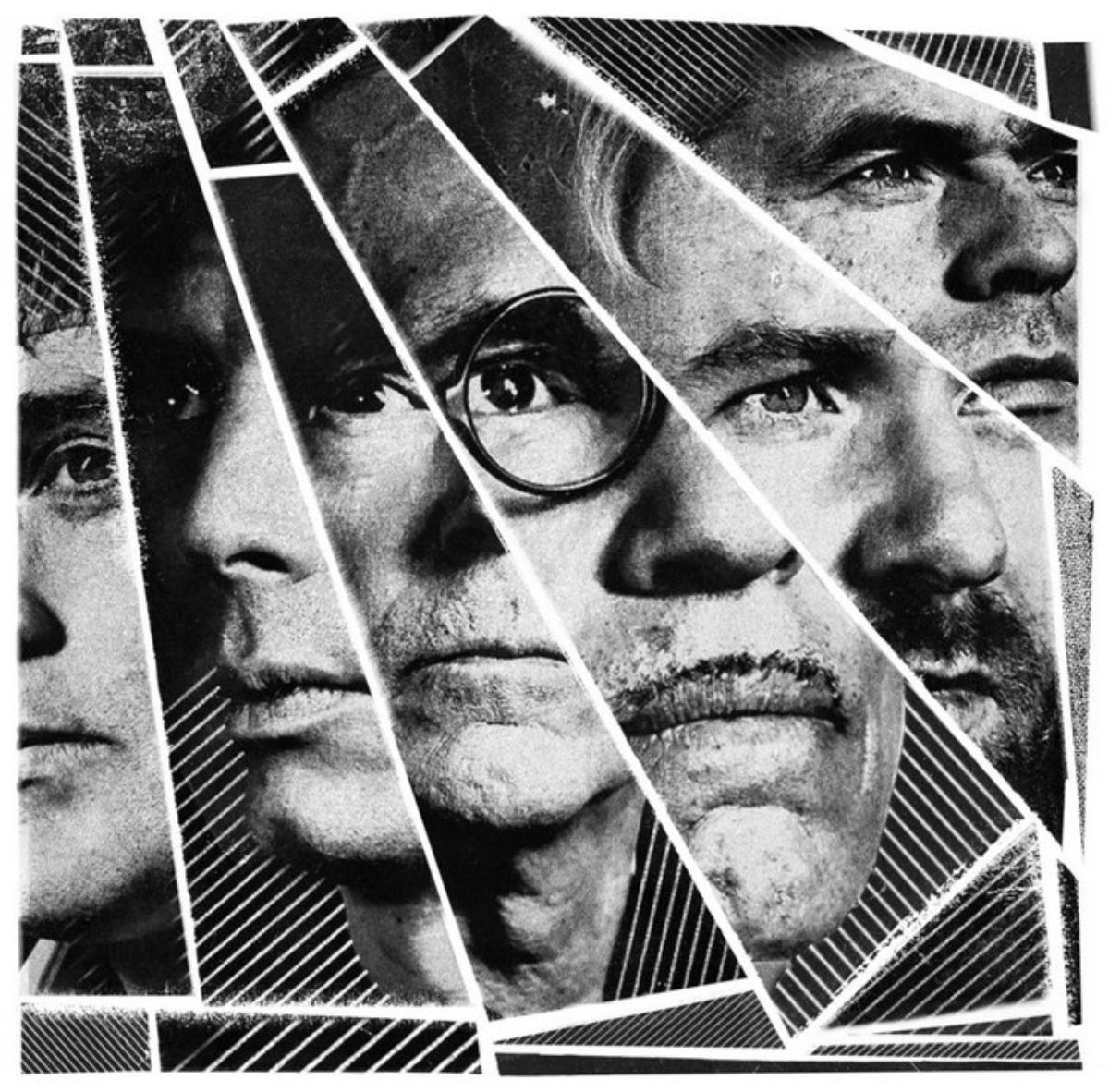
And Maela suddenly entered into a collaboration with the indie rockers who shook the senses of youth - Franz Ferdinand ("FFS", 2015)! It was a triumphant return to pop culture from the diamond underground - with all the baggage. Mael's piano and voice were surprisingly in tune with FF - the whole world took notice of the extravagant and detached grandfathers, expertly broadcasting about jealousy and anger, abuse and passion, stupidity and greed....
And on the wave of new popularity, for all their fans - half alive and newborn - Sparks released a new album, the strongest in their forty-year discography - "Hippopotamus" (2017). And it's got it all!.. From the airy ballads of psychedelica and the intricate psychoanalytical sessions of progressive rock - to the "reinvention" of this music by millennials of the indie scene. From the tentative attempts of the first underground electronic musicians of the 1980s Detroit format to the poppy EDM of Lady Gaga and Dua Lipa.
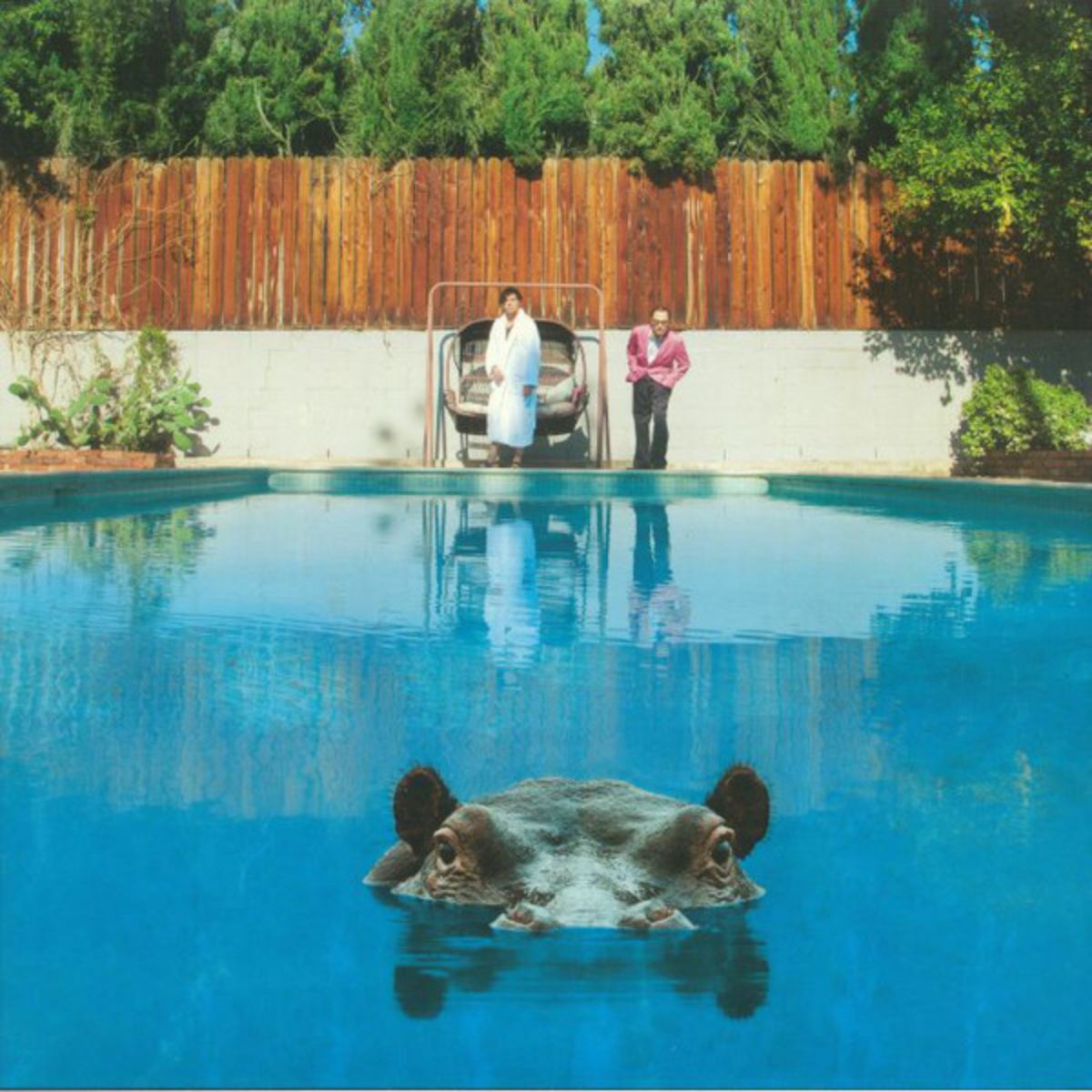
And the lyrics... Metaphorically speaking: it's as if a grandfather-designer in a green beret and big sunglasses, in a purple turtleneck, tight trousers and silver half-boots is teaching tattooed bearded hipsters, whose barbershop coincidentally opened next to the bench where he has been rereading Sartre on Thursdays for 42 years. He teaches about love and dependence, envy and greed, arbitrariness and freedom, the shame of egoism and the delirium of social conventions... Moreover, this is a very danceable album, beaming with vivacity and freshness - unlike the "long-awaited" releases of forgotten rock patriarchs, rattling voices telling "how things used to be". No, "Hippopotamus" is drive, heat and laughter.
And the music videos... Yes, the same thing that started it all. The wiggle of the moustache, the cover of the left eye, the slight twitch of the shoulder - all of this is as valid in the new musical aesthetic as it was when they first invented this format of inspirational yanking!...
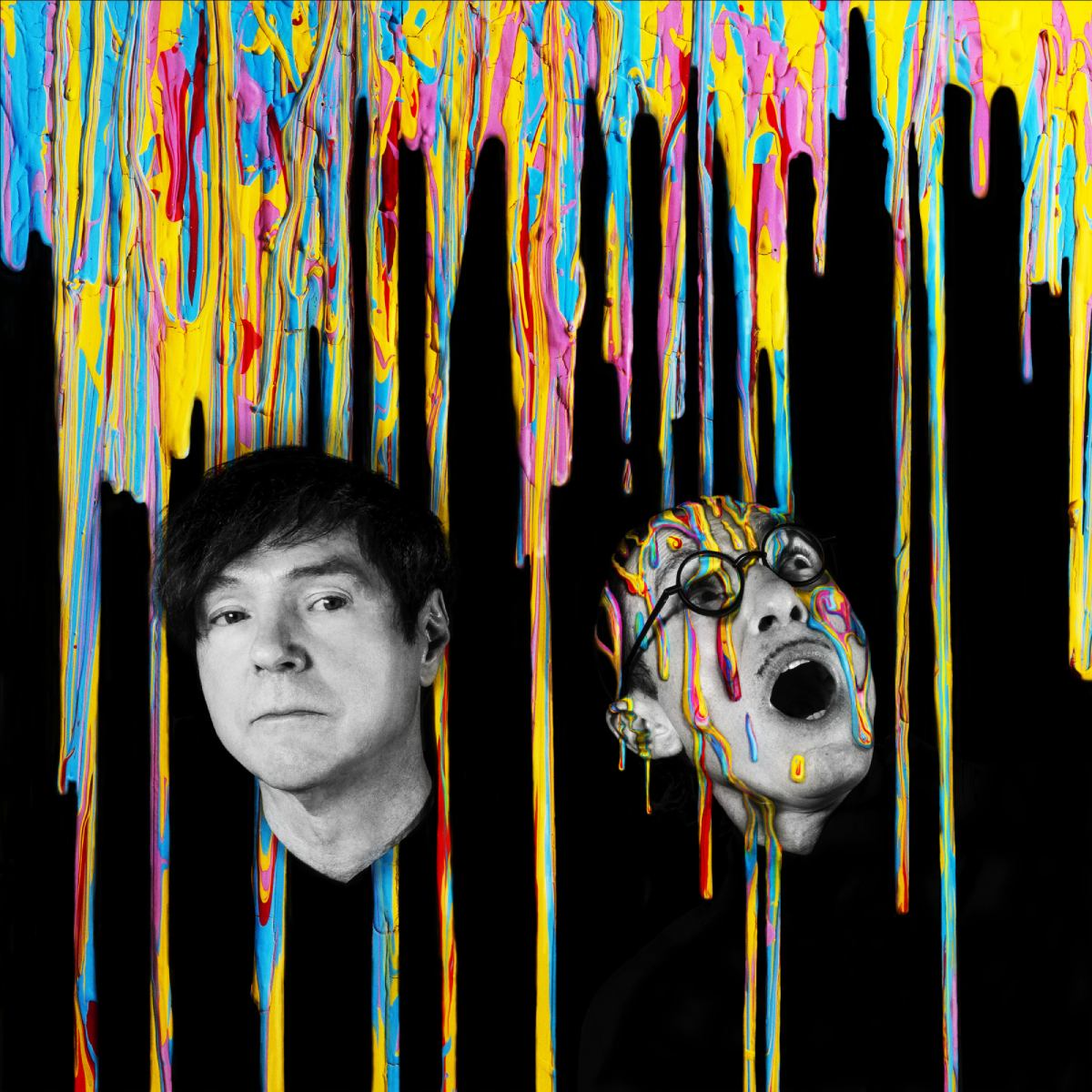
Conclusion
But the latest album "A Steady Drip, Drip, Drip" (2020) I admittedly didn't get it. There is less drive - it is constrained by the fashionable so-called "art-pop" palette - like in the last albums of Taylor Swift.
I don't get it - that's why I won't analyse it. But if the weirdo-grandfathers have taken up trendy rockapops again, it means that they are saying something. Probably, that even in music you should not dissolve - even it gets old. And if you rise above it, you can remain forever young, forever intoxicating with its timeless relevance, irony and self-sufficiency.
The author of the article is Kirill Kungurtsev



